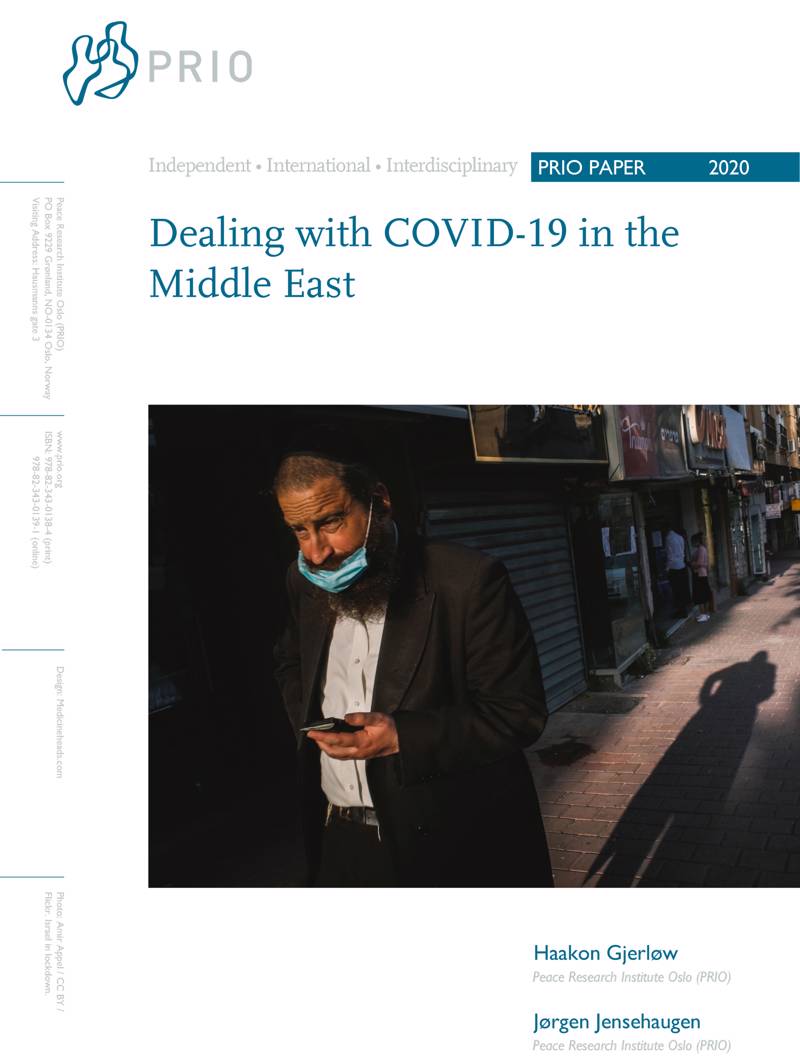
In May, a new PRIO Middle East Centre project started. The project, entitled 'Reacting to COVID-19 Across the MENA region', aims to explore how Middle East states reacted to the COVID-19 pandemic and what these varied reactions say about the regimes in question, combining statistical analysis of regional patterns with five case studies: Jordan, Turkey, Iran, Israel, and Palestine. The case studies are published in the MidEast Policy Brief series, with an accompanying PRIO Paper presenting the statistical analysis.
The project, led by Jørgen Jensehaugen and Haakon Gjerløw, combines data measuring state capacity and level of authoritarianism (using the V-Dem database) with data on how fast COVID-19 policies were enacted and what level of measures/strictness the regimes implemented, to provide an overview of how Middle East states have reacted to the pandemic. Adding qualitative case studies of specific states, the project fleshes out variations across the region. The initial cases were chosen because they represent the varieties in regime types and responses which exist in the Middle East. The initial case studies are Jordan, Turkey, Iran, Israel, and Palestine.
The results of the case studies can be found here:
Jordan and COVID-19: Effective Response at a High Cost
Turkey and COVID-19: Balancing Health and Economic Priorities
Iran and COVID-19: Timing Matters
Israel and COVID-19: The politics of health, security, and government formation
Palestine and COVID-19: Global Standards, Local Constraints
The PRIO Paper presenting the statistical analysis can be found here:





